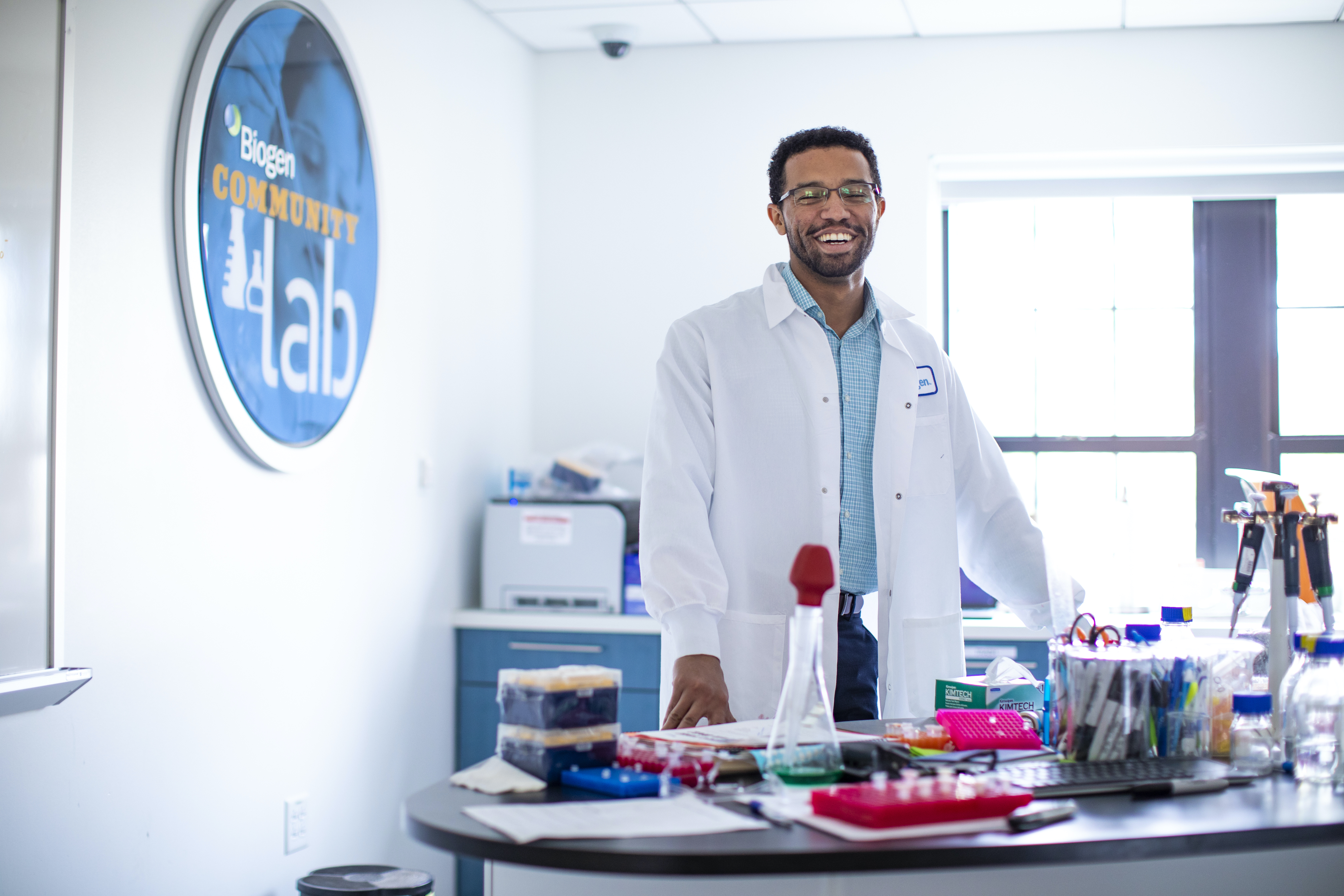How can we ensure a future that offers everyone opportunities to succeed through science? Alazar Ayele, Manager of Corporate Responsibility at Biogen, joined us for another virtual Manifest Mornings session to talk about how he's helping students learn about the importance of STEM at Biogen's Community Lab. And Alazar isn't just talking from his experience as manager of the lab — as a former Community Lab student, he's living proof of the positive impact of inclusive science.
Below, read our key takeaways from an enlightening conversation with Alazar at time when talking about inclusivity is more pertinent than ever:
Curiosity is the starting point for discovery - As a child growing up in Ethiopia, Alazar had a curious mind, always tinkering with things to learn how they worked. He shared the story of an incident in which he smashed a treasured wristwatch of his mother's to bits, just to see what made it tick. This desire to take things apart just to put them back together again is inherent in lots of children, but not everyone connects this curiosity back to STEM.
STEM is everywhere and everything that we see - STEM is traditionally thought of as science, technology, engineering and mathematics. But the way Alazar sees it, everything has STEM components if we simply open our eyes and look around. He offered the example of the plants in his apartment, which take in light and use chlorophyll.
Diverse leaders act as role models for today's students - While STEM is so important in our world, there’s a major problem we're facing: a lack of diversity in it. As someone who grew up as part of a vulnerable population, Alazar told us, "It’s important to have someone who looks like me teaching a lecture. It shows me what I can become." Having leaders in STEM who are people of color is also important because they can provide encouragement for students from underrepresented populations.
Don't be afraid to talk about your failures - For anyone looking to support students in STEM, Alazar offered this advice: Bring students of underrepresented populations into your lab space. Ensure that they’re actually doing the science with hands-on work. Mentorship is also important. Sit down with the students and get vulnerable; tell them about the times you’ve failed.
If you're determined, you can always find a way - Taking a summer camp focused on hands-on science and moving it to an online format is not an easy feat. But that's what Biogen's Community Lab has done in collaboration with the Lemelson-MIT program in light of COVID-19. In a similar way, as a student at the Community Lab, Alazar learned to pursue relentlessly for results. "That’s what science is all about," he told us.
For life sciences companies looking to support diversity in STEM, Alazar simply says, "Create a community lab. Find a way to do it, because the students are there."
Couldn't make it for the live event, or want to revisit part of the discussion? Press play on the recording below to watch the conversation unfold.
We love hearing from you! Keep the conversation going on Slack or by engaging with us on our social channels (Twitter, Facebook, LinkedIn, and Instagram with #ManifestMornings).
